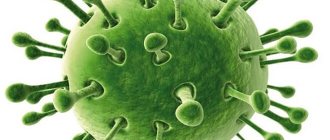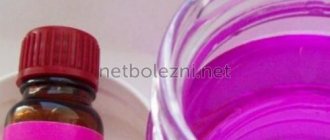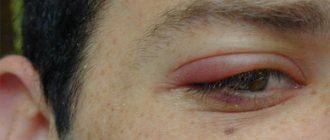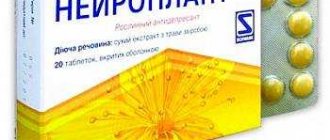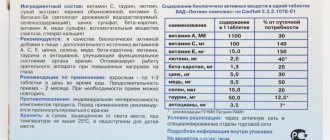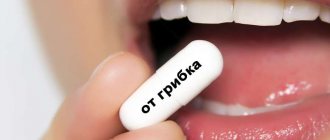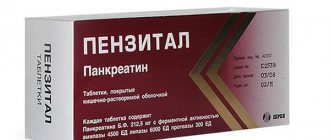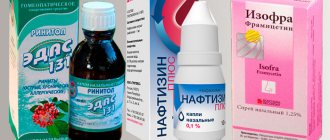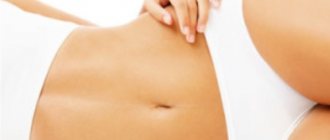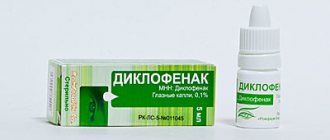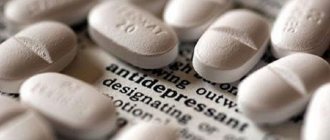Stressful situations and depressive states have become almost constant companions of modern humanity. Most of them solve these problems with the help of special medications - antidepressants. However, not everyone knows that even the best new generation antidepressants can have a serious impact on the biochemistry of the brain and psyche and have quite pronounced side effects.
In order to understand which antidepressant is the best, you need to understand the mechanism of action of drugs in this group
History of the discovery of antidepressants
Since ancient times, humanity has approached the issue of treating depression with different theories and hypotheses.
Ancient Rome was famous for its ancient Greek physician named Soranus of Ephesus, who proposed lithium salts for the treatment of mental disorders, including depression. As scientific and medical progress has progressed, some scientists have turned to a range of substances to combat the war on depression, from cannabis, opium and barbiturates to amphetamine. The last of them, however, was used in the treatment of apathetic and lethargic depression, which was accompanied by stupor and refusal to eat.
The first antidepressant was synthesized in laboratories in 1948. This drug was Imipramine. After this, clinical studies were carried out, but they did not release it until 1954, when Aminazine was obtained. Since then, many antidepressants have been discovered, the classification of which we will talk about later.
Persen
Name of the drug: Persen.
Indications: poor sleep, irritability, increased nervous excitability.
Action: sedative and antispasmodic effect.
Side effects: allergic reaction. With prolonged use - constipation.
Contraindications: hypersensitivity to the components of the drug, arterial hypotension. Children under 3 years old (tablets), children under 12 years old (capsules)
Magic pills - their groups
All antidepressants are divided into 2 large groups:
- Thymiretics are drugs with a stimulating effect that are used to treat depressive conditions with signs of depression and depression.
- Thymoleptics are drugs that have sedative properties. Treatment of depression with predominantly excitatory processes.
Antidepressants are further divided according to their mechanism of action.
Indiscriminate action:
- Melipramine;
- Amizol.
Selective action:
- block the uptake of serotonin - Flunisan, Sertraline, Fluvoxamine;
- block the uptake of norepinephrine - Maproteline, Reboxetine.
Monoamine oxidase inhibitors:
- non-selective (inhibit monoamine oxidase A and B) – Transamine;
- selective (inhibit monoamine oxidase A) - Autorix.
Antidepressants of other pharmacological groups - Coaxil, Mirtazapine.
Schisandra tincture
Name of the drug: Schisandra tincture.
Indications: hypotension, neurasthenia, depression.
Action: stimulates the central nervous system, increases blood pressure, improves visual acuity.
Side effects: overexcitation of the central nervous and cardiovascular systems.
Contraindications: insomnia, high blood pressure, acute infectious diseases.
Let's take a closer look at the class of sedative antidepressants.
Mechanism of action of antidepressants
In short, antidepressants can correct some processes occurring in the brain.
The human brain is made up of a colossal number of nerve cells called neurons. A neuron consists of a body (soma) and processes - axons and dendrites. The neurons communicate with each other through these processes. It should be clarified that they communicate with each other by a synapse (synaptic cleft), which is located between them. Information from one neuron to another is transmitted using a biochemical substance - a mediator. At the moment, about 30 different mediators are known, but the following triad is associated with depression: serotonin, norepinephrine, dopamine. By regulating their concentration, antidepressants correct impaired brain function due to depression.
The mechanism of action differs depending on the group of antidepressants:
- Neuronal uptake inhibitors (non-selective) block the reuptake of neurotransmitters - serotonin and norepinephrine.
- Neuronal serotonin uptake inhibitors : Inhibit the process of serotonin uptake, increasing its concentration in the synaptic cleft. A distinctive feature of this group is the absence of m-anticholinergic activity. There is only a slight effect on α-adrenergic receptors. For this reason, such antidepressants have virtually no side effects.
- Neuronal norepinephrine uptake inhibitors : interfere with the reuptake of norepinephrine.
- Monoamine oxidase inhibitors : monoamine oxidase is an enzyme that destroys the structure of neurotransmitters, resulting in their inactivation. Monoamine oxidase exists in two forms: MAO-A and MAO-B. MAO-A acts on serotonin and norepinephrine, MAO-B acts on dopamine. MAO inhibitors block the action of this enzyme, thereby increasing the concentration of mediators. The drugs of choice for treating depression are often MAO-A inhibitors.
Modern classification of antidepressants
Tricyclic antidepressants
The tricyclic group of drugs blocks the transport system of presynaptic terminals. Based on this, such drugs disrupt the neuronal uptake of neurotransmitters. This effect allows for a longer stay of the listed mediators in the synapse, thereby ensuring a longer effect of mediators on postsynaptic receptors.
Drugs in this group have α-adrenergic blocking and m-anticholinergic activity - they cause the following side effects:
- dry mouth;
- violation of the accommodative function of the eye;
- bladder atony;
- decrease in blood pressure.
Ginseng tincture
Name of the drug: Ginseng tincture.
Indications: hypotension, increased fatigue, overwork.
Action: increased performance, decreased fatigue, increased blood pressure.
Side effects: insomnia, headache, diarrhea, nausea, nosebleeds.
Contraindications: hypertension, children under 16 years of age, hyperfunction of the thyroid gland.
Side effects
Since these antidepressants have a diverse chemical structure and mechanism of action, side effects may vary. But all antidepressants have the following common symptoms when taking them: hallucinations, agitation, insomnia, and the development of manic syndrome.
Thymoleptics cause psychomotor retardation, drowsiness and lethargy, and decreased concentration. Thymiretics can lead to psychoproductive symptoms (psychosis) and increased anxiety.
The most common side effects of tricyclic antidepressants include:
- constipation;
- mydriasis;
- urinary retention;
- intestinal atony;
- violation of the act of swallowing;
- tachycardia;
- impairment of cognitive functions (impaired memory and learning processes).
Elderly patients may experience delirium - confusion, disorientation, anxiety, visual hallucinations. In addition, the risk of weight gain, the development of orthostatic hypotension, and neurological disorders (tremor, ataxia, dysarthria, myoclonic muscle twitching, extrapyramidal disorders) increases.
With long-term use - cardiotoxic effects (cardiac conduction disturbances, arrhythmias, ischemic disorders), decreased libido.
When taking selective inhibitors of neuronal serotonin uptake, the following reactions are possible: gastroenterological - dyspeptic syndrome: abdominal pain, dyspepsia, constipation, vomiting and nausea. Increased anxiety levels, insomnia, dizziness, fatigue, tremors, impaired libido, loss of motivation and emotional dulling.
Selective norepinephrine reuptake inhibitors cause side effects such as insomnia, dry mouth, dizziness, constipation, bladder atony, irritability and aggressiveness.
Prozac
Drug name: Prozac.
Analogs: Fluoxetine, Prodel, Profluzak, Fluval.
Indications: depression, bulimia nervosa, obsessive-compulsive disorder (obsessive thoughts and actions).
Action:
- relieves emotional overload and obsessive thoughts;
- will alleviate anorexia nervosa;
- eliminates premenstrual disorders;
- reduce anxiety and panic.
Side effects: at the beginning of treatment and with increasing doses - anxiety, drowsiness, headache, nausea. Rarely – convulsions. Possible skin rashes, pain in muscles, joints, fever
Contraindications: hypersensitivity, pregnancy, lactation.
Tranquilizers and antidepressants: what's the difference?
Tranquilizers (anxiolytics) are substances that eliminate anxiety, fear and internal emotional tension.
The mechanism of action is associated with strengthening and increasing GABAergic inhibition. GABA is a biogenic substance that plays an inhibitory role in the brain. Prescribed as therapy for distinct attacks of anxiety, insomnia, epilepsy, as well as neurotic and neurosis-like conditions.
From this we can conclude that tranquilizers and antidepressants have different mechanisms of action and differ significantly from each other. Tranquilizers are unable to treat depressive disorders, so their prescription and use is irrational.
Leuzea extract
Name of the drug: Leuzea extract (Raponticum safflower).
Indications: as a complex therapy.
Action: general tonic effect, increased performance, improved mood, increased appetite .
Side effects: headache, irritability, increased blood pressure, allergic reaction, insomnia.
Contraindications: hypersensitivity, epilepsy, chronic sleep disorders, acute period of infectious diseases.
The power of "magic pills"
Depending on the severity of the disease and the effect of use, several groups of drugs can be distinguished.
Strong antidepressants - effectively used in the treatment of severe depression:
- Imipramine – has pronounced antidepressant and sedative properties. The onset of the therapeutic effect is observed after 2-3 weeks. Side effects: tachycardia, constipation, difficulty urinating and dry mouth.
- Maprotiline, Amitriptyline - similar to Imipramine.
- Paroxetine has high antidepressant activity and anxiolytic effect. Taken once a day. The therapeutic effect develops within 1-4 weeks after the start of administration.
Mild antidepressants - prescribed in cases of moderate and mild depression:
- Doxepin – improves mood, eliminates apathy and depression. A positive effect of therapy is observed after 2-3 weeks of taking the drug.
- Mianserin has antidepressant, sedative and hypnotic properties.
- Tianeptine – relieves motor retardation, improves mood, and increases the overall tone of the body. Leads to the disappearance of somatic complaints caused by anxiety. Due to the presence of a balanced action, it is indicated for anxious and inhibited depression.
Herbal natural antidepressants:
- St. John's wort - contains hepericin, which has antidepressant properties.
- Novo-Passit - it contains valerian, hops, St. John's wort, hawthorn, lemon balm. Helps relieve anxiety, tension and headaches.
- Persen - also contains a collection of herbs: peppermint, lemon balm, and valerian. Has a sedative effect. Hawthorn, rose hips - have sedative properties.
Paxil
Drug name: Paxil.
Analogs: Rexetine, Adepress, Actaparoxetine, Plizil, Paroxetine hydrochloride hemihydride, Sirestill.
Indications: depression of all types in adults and children 7-17 years old.
Action: in the first weeks of use, symptoms of depression are reduced and suicidal thoughts are eliminated. Prevents relapses of depression.
Side effects: drowsiness, insomnia, loss of appetite, tachycardia, nausea, constipation, seizures, sweating.
Contraindications: hypersensitivity to paroxetine and the components of the drug. Pregnancy, lactation.
Our TOP 30: the best antidepressants
We analyzed almost all antidepressants that are available for sale at the end of 2021, studied reviews and compiled a list of the 30 best drugs that have virtually no side effects, but at the same time are very effective and perform their tasks well (each to their own):
- Agomelatine is used for episodes of major depression of various origins. The effect occurs after 2 weeks.
- Adepress - provokes inhibition of serotonin uptake, used for depressive episodes, the effect occurs after 7-14 days.
- Azafen - used for depressive episodes. The treatment course is at least 1.5 months.
- Azona – increases the content of serotonin, is part of the group of strong antidepressants.
- Aleval – prevention and treatment of depressive conditions of various etiologies.
- Amizol - prescribed for anxiety and agitation, behavioral disorders, depressive episodes.
- Anafranil – stimulation of catecholaminergic transmission. It has adrenergic blocking and anticholinergic effects. Scope of application: depressive episodes, obsessive states and neuroses.
- Asentra is a specific serotonin uptake inhibitor. Indicated for panic disorders and in the treatment of depression.
- Aurorix is an MAO-A inhibitor. Used for depression and phobias.
- Brintellix is an antagonist of serotonin receptors 3, 7, 1d, an agonist of serotonin receptors 1a, correction of anxiety disorders and depressive states.
- Valdoxan is a melatonin receptor stimulator and, to a small extent, a blocker of a subgroup of serotonin receptors. Therapy for anxiety-depressive disorder.
- Velaxin is an antidepressant of another chemical group that enhances neurotransmitter activity.
- Wellbutrin - used for mild depression.
- Venlaxor is a powerful serotonin reuptake inhibitor. Weak β-blocker. Treatment of depression and anxiety disorders.
- Heptor - in addition to antidepressant activity, has antioxidant and hepatoprotective effects. Well tolerated.
- Herbion Hypericum is a herbal drug that belongs to the group of natural antidepressants. Prescribed for mild depression and panic attacks.
- Deprex is an antidepressant that has an antihistamine effect and is used in the treatment of mixed anxiety and depressive disorders.
- Deprefolt is a serotonin uptake inhibitor and has a weak effect on dopamine and norepinephrine. There is no stimulating or sedative effect. The effect develops 2 weeks after administration.
- Deprim - antidepressant and sedative effect occurs due to the presence of St. John's wort herb extract. Approved for use in the treatment of children.
- Doxepin is a serotonin H1 receptor blocker. The action develops 10-14 days after the start of administration. Indications: anxiety, depression, panic conditions.
- Zoloft - the scope of application is not limited to depressive episodes. Prescribed for social phobias and panic disorders.
- Ixel is an antidepressant that has a broad spectrum of action, a selective serotonin uptake blocker.
- Coaxil – increases the synaptic uptake of serotonin. The effect occurs within 21 days.
- Maprotiline - used for endogenous, psychogenic, somatogenic depression. The mechanism of action is based on inhibition of serotonin uptake.
- Miansan is a stimulator of adrenergic transmission in the brain. Prescribed for hypochondria and depression of various origins.
- Miracitol - enhances the effect of serotonin, increases its content in the synapse. In combination with monoamine oxidase inhibitors, it causes severe side effects.
- Negrustin is an antidepressant of plant origin. Effective for mild depressive disorders.
- Newelong is a serotonin and norepinephrine reuptake inhibitor.
- Prodep - selectively blocks the uptake of serotonin, increasing its concentration. Does not cause a decrease in the activity of β-adrenergic receptors. Effective for depression.
- Citalon is a high-precision serotonin uptake blocker with minimal effect on the concentrations of dopamine and norepinephrine.
Azafen
Drug name: Azafen.
Indications: asthenodepressive syndrome, anxiety-depressive state, alcoholic depression, endogenous depression, exogenous depression, depressive states in chronic somatic diseases.
Action: elimination of anxiety and depression, manifestations of senile depression, smoothing out the negative state caused by long-term use of antipsychotics.
Side effects: nausea, vomiting, headache, dizziness.
Contraindications: hypersensitivity, myocardial infarction, coronary heart disease, diabetes mellitus, pregnancy, acute infectious diseases.
There's something for everyone
Antidepressants are most often not cheap, we have compiled a list of the most inexpensive of them in ascending order of price, with the cheapest drugs at the beginning and the more expensive ones at the end:
- The most famous antidepressant is also the cheapest (maybe that’s why it’s so popular) Fluoxetine 10 mg 20 capsules – 35 rubles;
- Amitriptyline 25 mg 50 tablets – 51 rubles;
- Pyrazidol 25 mg 50 tablets – 160 rubles;
- Azafen 25 mg 50 tablets – 204 rubles;
- Deprim 60 mg 30 tablets – 219 rubles;
- Paroxetine 20 mg 30 tablets – 358 rubles;
- Melipramine 25 mg 50 tablets – 361 rubles;
- Adepress 20 mg 30 tablets – 551 rubles;
- Velaxin 37.5 mg 28 tablets – 680 rubles;
- Paxil 20 mg 30 tablets – 725 rubles;
- Rexetine 20 mg 30 tablets – 781 rubles;
- Velaxin 75 mg 28 tablets – 880 rubles;
- Stimuloton 50 mg 30 tablets - 897 rubles;
- Tsipramil 20 mg 15 tablets – 899 rubles;
- Venlaxor 75 mg 30 tablets - 901 rub.
Mianserin
Drug name: Mianserin.
Indications: Depression of various origins.
Action: improved sleep, decreased nervous excitability.
Side effects: drowsiness, hypokinesia, convulsions.
Contraindications: manic syndrome, pregnancy, lactation, childhood (under 18 years). Liver and kidney failure.
Valerian tincture
Name of the drug: Valerian tincture.
Indications: insomnia, migraine, hysteria, increased excitability, smooth muscle spasms.
Action: calming, antispasmodic, choleretic, normalizing effect for the gastrointestinal tract.
Side effects: decreased performance, drowsiness, depression.
Contraindications: individual intolerance.
Prevention
If you lead a healthy lifestyle, you can protect yourself from the onset of depression. It is recommended to adhere to the following recommendations:
- Maintain a daily routine so that the load is distributed evenly.
- Ensure regular, adequate rest.
- Systematically playing sports, which provokes the release of adrenaline, increases self-esteem.
- Stick to a diet, make sure that your diet includes the necessary elements and vitamins.
- Lead a healthy lifestyle without bad habits.
- Get more positive emotions thanks to time spent outdoors and communicating with friends.
If you follow these recommendations, you will be able to protect yourself from depression. At the first manifestations of this disease, you should immediately consult a doctor.
Important! Informational article. Before using any medications, you should consult a specialist.
Novo-passit
Name of the drug: Novo-passit.
Indications: neurasthenia, “manager” syndrome, migraine, eczema of psychological etiology.
Action: sedative, relieving nervous excitability of the premenstrual and menopausal periods, eliminating anxiety.
Side effects: allergic reactions, dizziness, drowsiness, slight decrease in muscle tone.
Contraindications: hypersensitivity to the components of the drug, children (up to 12 years), alcoholism, epilepsy, diseases, brain injuries.
Hidden threat
By analyzing modern drugs that are prescribed for depressive conditions, it is possible to find out why antidepressants are dangerous. Research in recent years demonstrates that these substances not only help stabilize the internal state of the body, but also cause direct harm to internal systems and organs.
In addition to addiction to these drugs, which negatively manifests itself during withdrawal symptoms, there is a danger of toxic liver damage.
The greatest threat to the liver is a component called amitriptyline. With regular use of antidepressants, drug-induced toxic hepatitis begins to develop.
Hawthorn tincture
Name of the drug: Hawthorn tincture.
Indications: nervousness, cardiovascular diseases, menopause, high cholesterol.
Action: calming effect on the nervous system, normalization of heart activity, reduction of excitability during menopause.
Side effects: allergic reactions, itching, urticaria.
Contraindications: pregnancy, lactation, individual intolerance, children under 12 years of age.
Comparison table of characteristics
We draw your attention to the comparative characteristics of the drugs:
| Name | Active substance | Tablets in a pack (pcs.) | Clinical effect (weeks) | Manufacturer country | Price, rub.) |
| Anafranil | clomipramine | 30 | 2-3 | Switzerland | 270 |
| Clomipramine | clomipramine hydrochloride | 30 | 2-3 | Canada | 275 |
| Melipramine | imipramine hydrochloride | 50 | 2-4 | Hungary | 335 |
| Doxepin | doxepin | 30 | 2 | Poland | 800 |
| Lerivon | mianserin hydrochloride | 20 | 2-4 | Netherlands | 982 |
| Zoloft | sertraline | 28 | 2-4 | USA | 915 |
| Saroten Retard | amitriptyline hydrochloride | 30 | 1-2 | Denmark | 1020 |
